Similar to PTSD (post-traumatic stress disorder) people who have once shared their life with a narcissist may go through corresponding occurrences resembling the symptoms of PTSD. Maybe we should call it PNSD or Post Narcissist Stress Disorder.
Post-traumatic stress disorder develops after one has experienced an event or action that causes intense fear, disbelief, helplessness, or horror.
While it is common to have a period of adjusting and coping after a narcissist, for many these periods of difficult adjustments may continue for quite a while. With time, attitude adjustment, letting go of the narcissist, giving the narcissism back to the narcissist (it is THEIR problem and ISSUE, no longer yours), and taking care of you, such traumatic reactions usually get better and dissipate completely.
Anything can bring on PNSD…even things as simple as the familiar smell of his/her cologne on a stranger walking by, a song playing on the radio, or even certain foods. It doesn’t matter what brings you back to that terrifying nightmare … what does matter is that instantly & out-of-the-blue you are transported back to a time in your life that was mentally and emotionally disturbing. These identifiers are called ‘triggers’.
Related: Relationship With A Narcissist: 6 Types Of Baiting You’ll Get From A Narcissist
3 Major Symptoms Of Post Narcissist Stress Disorder (PNSD)
1) Intrusive memories of the narcissist — these may be memories that had a sudden onset caused by a ‘trigger’, or memories that are continuous and lingering.
2) Avoidance and emotional numbing.
3) Anxiety and increased emotional volatility.
1) Symptoms of intrusive memories of the narcissist may include:
1. Flashbacks of their narcissistic rages, images of intense rage, or reliving the traumatic event for minutes or even days at a time.
2. Suddenly questioning your own mental stability due to months/ years of abuse and/or gaslighting when trying to perform everyday tasks or relating to others.
3. Upsetting dreams about the narcissistic event.
4. Difficulty readjusting your self-esteem and feeling good about yourself in social situations resulting from months/years of emotional, mental, verbal, and oftentimes physical abuse.
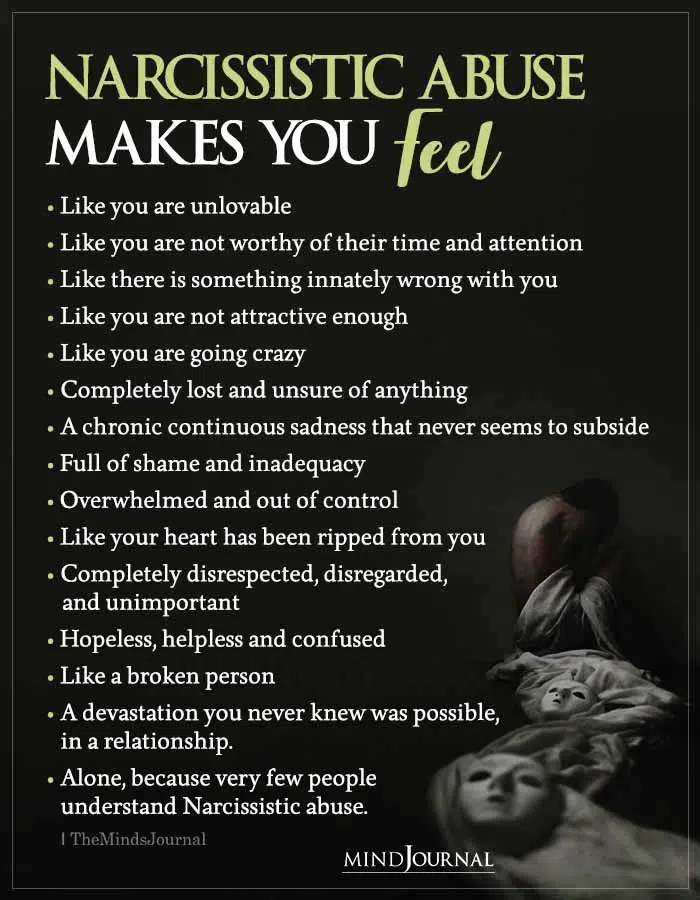
2) Symptoms of avoidance and emotional numbing may include:
1. Avoiding social situations, activities, people, or relationships that you once enjoyed.
2. Trying to avoid thinking or talking about the narcissist.
3. Feeling emotionally numb towards life and love.
4. Substance abuse or overuse of sleep aids.
5. Memory problems.
6. Trouble concentrating or performing simple actions.
7. Distancing yourself or feeling on the apathetic ‘outside’ of conversations.
8. Difficulty starting new relationships or maintaining close relationships.
9. Cocooning or hiding.
10. Hopelessness about the future or feelings of defeat.
Related: Living With Post Narcissist Stress Disorder: Unraveling PTSD after Narcissistic Abuse
3) Symptoms of anxiety and increased emotional volatility may include:
1. Irritability, rage, temper outbursts, or anger.
2. Being caught up in the gaslighting mode whereas you may have difficulty adjusting to everyday tasks or questioning your memories, motives, and sanity. Self-doubt and loss of self-confidence.
3. Overwhelming guilt or shame, self-blame, or Stockholm syndrome.
4. Self-destructive behavior, such as casual sex with strangers, drinking too much, not eating properly, quitting your job, or doing drugs.
5. Trouble sleeping.
6. Panic attacks.
7. Crying attacks.
8. Being easily startled or frightened, jumpy, and hypervigilant.
9. Paranoia or imagining worst-case scenarios.
10. Questioning others’ intents and genuinity, especially with new partners.
11. Reliving arguments or narcissistic rage in your head.
Related: Effects Of Narcissistic Abuse: 6 Signs You Have Narcissistic Abuse Syndrome
The narcissist experience may haunt you for a long time. It may interrupt your daily life and activities, and invade you at any unforeseen moment.
Post-Narcissist Stress Disorder (PNSD) Written By Tigress Luv, http://tigressluv.com, author of 'Counterfeit Heart' and 'Daily Inspirations for Those Recovering from a Narcissist' Originally Appeared On Breakups.org Printed With Permission
Frequently Asked Questions (FAQs)
Is post-narcissist stress disorder real?
Yes, post-narcissist stress disorder is real and is a result of narcissistic abuse over the years. Narcissistic abuse victims tend to experience similar symptoms of trauma and PTSD.
What is post narcissist stress disorder?
People who have been in a relationship with a narcissist and have gone through substantial narcissistic abuse at their hands might show prominent symptoms of trauma and PTSD.

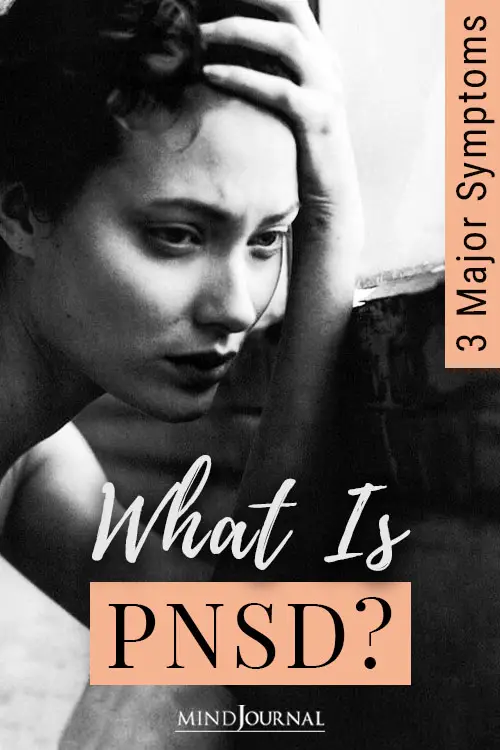
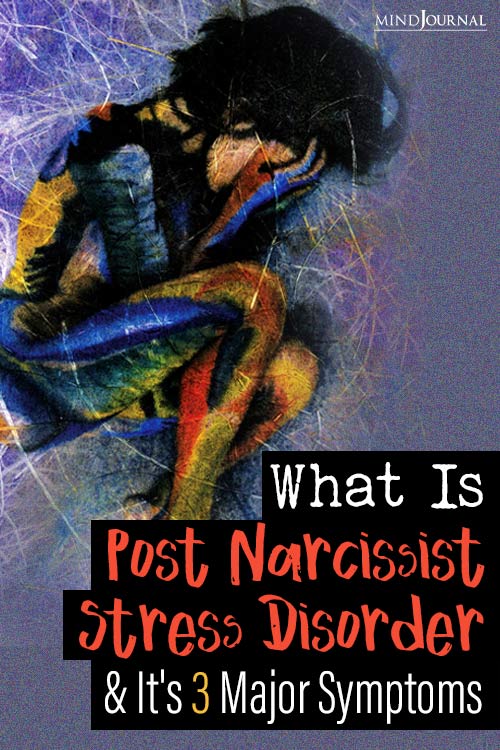
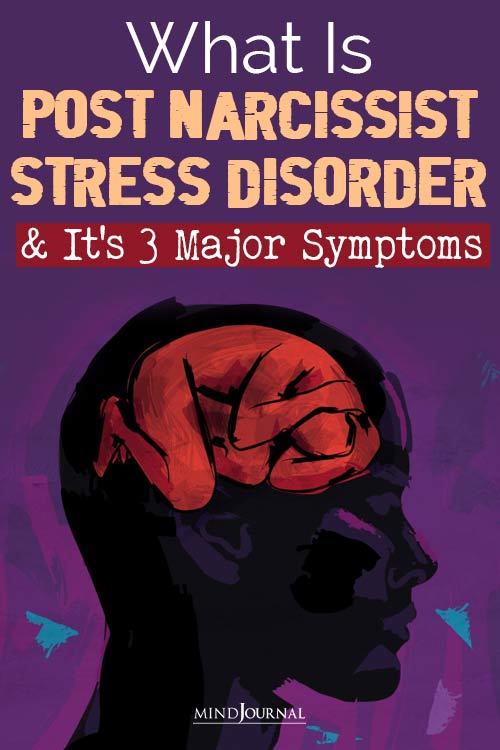
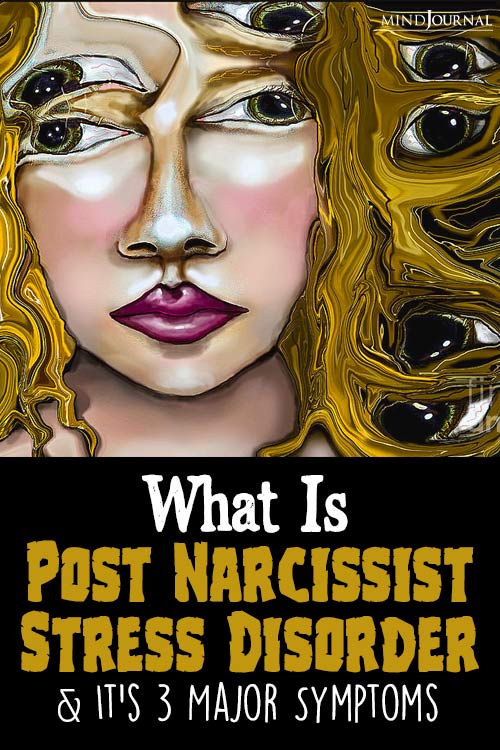
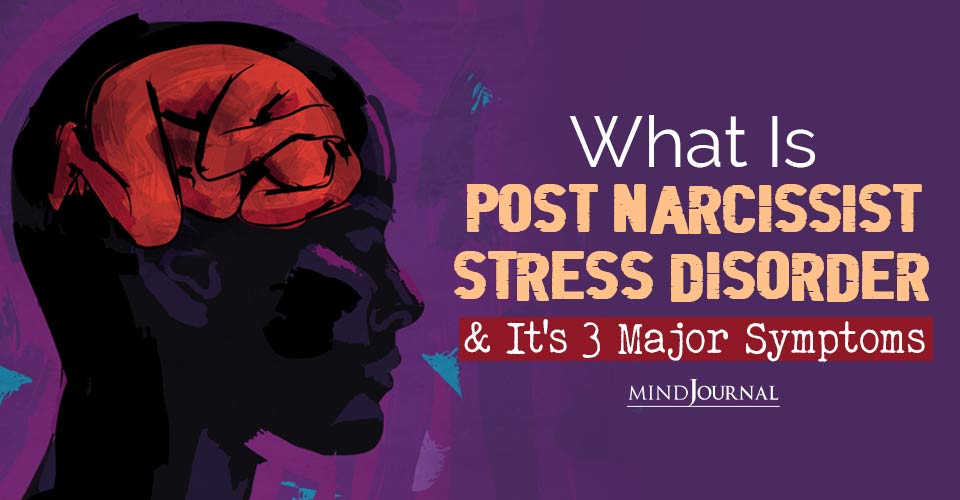







Leave a Reply
You must be logged in to post a comment.